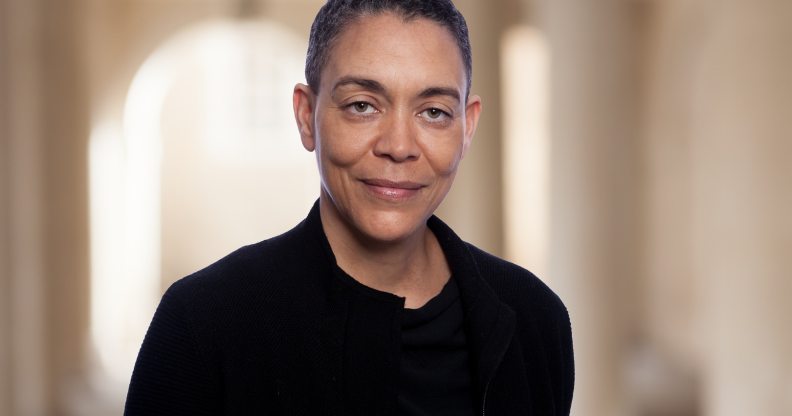Barrister who slammed Stonewall’s trans inclusion advice handed key equalities role by Liz Truss

Akua Reindorf is the newest commissioner for the Equality and Human Rights Commission. (Government Equalities Office)
A barrister who criticised LGBT+ charity Stonewall’s guidance on trans inclusion has been appointed to a key equalities watchdog role.
Akua Reindorf is the newest commissioner for the Equality and Human Rights Commission (EHRC) and will also be a board member.
She is an employment judge and author of the Reindorf Report, which was commissioned by the University of Essex earlier this year to review its policy regarding speakers on campus after two women accused of transphobia were uninvited from speaking.
The report was critical of Stonewall, Europe’s biggest LGBT+ charity, and accused it of mis-advising universities on trans inclusion.
Stonewall faced what it called a “coordinated attack” from the media in the wake of the report’s publication.
Reindorf was appointed to the EHRC role by Liz Truss, the Conservative minister for women and equalities, who said: “Akua will bring great experience, expertise and intellectual rigour to the role and I look forward to working with her to deliver the government’s levelling up agenda.”
Reindorf will work with the EHRC on “protecting and promoting equality and human rights”.
The EHRC is a statutory body that was set up in 2006 to “encourage equality and diversity, eliminate unlawful discrimination, and promote and protect human rights”.
The Reindorf Report and Stonewall
At the start of June 2021, which is Pride month in the UK, the University of Essex published the Reindorf Report – an independent review of the university’s decision to uninvite two “gender critical” speakers amid complaints.
Reindrof’s report was highly critical of Stonewall and its LGBT+ workplace inclusion scheme, the Diversity Champions programme.
The Reindorf Report said that Stonewall has failed to pick up on the university’s “incorrect summary of the law” – because its “Supporting Trans and Non-binary Staff policy” used layman terms like “trans status” and “gender identity” rather than “gender reassignment”, which is the language used to describe the protected characteristic under the Equality Act 2010.
“In my view the policy states the law as Stonewall would prefer it to be, rather than the law as it is. To that extent the policy is misleading,” the report read.
Stonewall’s advice is based on the EHRC’s own guidance for service providers on implementing the Equality Act, which has been backed as lawful by both an internal EHRC review and a High Court judge who on 6 May confirmed there is “no arguable reason to believe the Code has mislead or will mislead service providers about their responsibilities under the Act in order to place women or girls at risk”.
The report also criticised university policy which described denying a trans person access to appropriate single-sex facilities as discrimination, saying it is a “contested issue”.
Among Reindorf’s recommendations were that the university should apologise to the uninvited “gender critical” speakers, and that a working group should be established to “devise and implement a strategy for repairing relationships between trans and non-binary university members and those with gender critical views, in particular women”.
Reindorf also recommended that the university should reconsider its relationship with Stonewall.
“In particular, it should consider that this relationship appears to have given university members the impression that gender critical academics can legitimately be excluded from the institution,’ the report read. The university did not accept this recommendation, but did others.
A month after the Reindorf Report was published, the University of Essex apologised to trans staff and students for the “very negative impact” the report had on them, and the vice-chancellor reiterated the university’s commitment to working with Stonewall.
Professor Anthony Forster said he is “sincerely sorry” for the bullying and harassment trans and non-binary students faced as a result of the timing and way the report was published, and vowed to “repair relationships” with trans staff and students at the University of Essex.
“My personal view is that the current law in the UK does not fully respect and protect the identities of trans and non-binary people,” Forster said in a 2 July statement.

